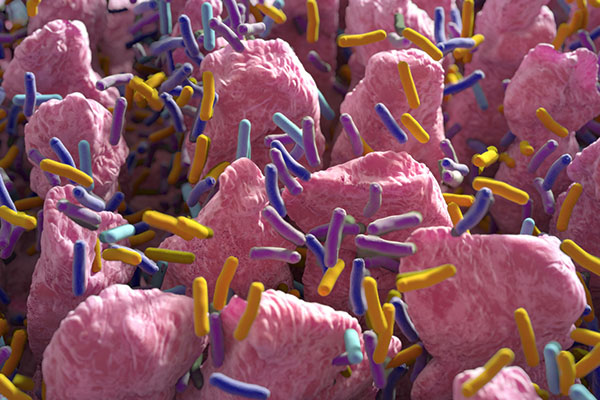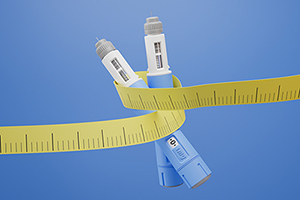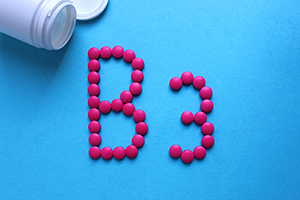



| By Dr. Ronald Hoffman

As if recent headlines like this weren’t enough:
“Study: A low-carb diet may be cutting your life short”—KGW.com
“Instead of taking multivitamins, eat a healthy diet”—Times Colonist
“Saturated animal fat more likely to cause liver damage, heart disease and diabetes than sugar” —Diabetes Care [see my recent takedown of this study here]
“Cancer patients who use alternative treatments more likely to die”—New Haven Register
“Vitamin D, the sunshine supplement, has shadowy money behind it”—New York Times
What is it—“Shark Week” for health writers?!
I can barely keep up. Come on guys, it’s the dog days of summer, we’re all trying to grab our last precious days of vacation, and still we’re bombarded with negative, deceptive headlines that cry out for refutation!
It strikes me as unprecedented the degree to which researchers, not just click-baiting journalists, are weighing in with unwarranted pop culture opinions in a misguided reach for “relevance” to burnish their dreary experiments!
OK, between biking, swimming, running, stand up paddle boarding, grilling and entertaining guests, here’s my critique of the probiotic/brain fog study:
The paper, titled “Brain fogginess, gas and bloating: a link between SIBO, probiotics, and metabolic acidosis” was published in the journal Clinical and Translational Gastroenterology.
The authors looked at a small group of 38 individuals—thirty patients with brain fog and 8 without brain fog were evaluated. Both groups were experiencing abdominal bloating, pain, distention and gas and their prevalence was similar between groups. The only difference was that one group was experiencing brain fog, the other not.
In the brain fog group, all consumed probiotics. But wait—BS alarm!! Why the intentional bias in patient selection? Did all the patients with brain fog just happen to be taking probiotics? Aren’t there any people out there with brain fog who don’t consume probiotics? Is it possible that many of these subjects with abdominal symptoms and brain fog were taking probiotics after the fact to relieve their malaise?
Additionally, what precisely is “brain fog”? In studies of patients with, say, Alzheimer’s Disease, there are objective diagnostic criteria to be met to verify the designation. Though many of our patients complain of it, when we integrative physicians talk about brain fog, we’re accused of lack of scientific rigor—medical authorities even challenge the very concept of brain fog as being overly “vague.”
The researchers in the probiotic/brain fog study go on to link brain fog with small intestine bacterial overgrowth (SIBO). I like that they do that, because it’s foundational in functional medicine to correlate the state of the microbiome with mood symptoms. Overgrowth of bacteria can produce intoxicating substances that cross the blood-brain barrier to affect neuronal metabolism.
Not surprisingly, SIBO was found to be more prevalent in the brain fog group than in the non-brain fog group (68 vs. 28%, p = 0.05).
Then the researchers throw in a measure of toxicity by hyper-proliferating bacteria: D-lactic acidosis. So far so good! It’s a nice start, but this is but one of the toxic bacterial and yeast metabolites that can affect the brain, including endotoxins, acetaldehyde, and even ethanol (responsible for “auto-brewery syndrome”).
D-lactic acidosis is known to occur in patients with short gut syndrome, as in post gastric bypass surgery, or after intestinal resection. It’s also frequently reported in children with high carbohydrate diets. Excess antibiotics can cause it, as can probiotics—but only very rarely. The symptoms of D-lactic acidosis include mental confusion and wobbly gait.
Sure enough, D-lactic acidosis was more prevalent in brain fog subjects compared to non-brain fog subjects (77 vs. 25%, p = 0.006).
It’s certainly no foregone conclusion that the probiotics were responsible for the D-lactic acidosis. Because the “Materials and Methods” section of the study fails to mention it, there’s no distinguishing which probiotics the subjects with brain fog were taking. Some probiotics—those containing lactobacillus—have the potential to stoke D-lactic acidosis; others, like bifidobacteria, do not.
But here comes the ultimate sleight of hand—wait for it . . .
“After discontinuation of probiotics and a course of antibiotics[emphasis added], brain fog resolved and gastrointestinal symptoms improved significantly (p = 0.005) in 23/30 subjects (77%).”
Stop! You can’t have it both ways. If you want to demonstrate that probiotics were the culprit, you’d have to demonstrate that a) no patients with brain fog weren’t taking probiotics, and b) cessation of probiotics alone, and not additional antibiotics, was responsible for reversing the symptoms of mental confusion.
So, the paper amounts to a pretty convincing demonstration that brain fog is linked to SIBO, but in no way does it demonstrate that probiotics were the perpetrators of the disorder.
It strikes me as strange that the authors make no mention of diet as a trigger of SIBO, and hence brain fog. It’s as if the low-FODMAP diet—specifically designed to minimize bacterial proliferation—had never been invented. Why not try a low-carb or low-FODMAP diet in these sufferers of bloating, abdominal pain and brain fog? How much did poor dietary choices contribute to the malaise of enrollees in this study? Why single out their use of probiotics as causative?
It reminds of me of the days when we presciently associated brain fog with “Candida”—yeast overgrowth of the intestine. We knew the solution—a low-carb diet! That was 30 years ago, and since then, the concept has been refined into “SIBO”—and “discovered” by these researchers!
The International Probiotics Association, and other experts, roundly reject the conclusions of the brain fog paper:
“An observational study that purported to show a link between ‘brain fogginess’ and probiotics use has so many problems with it that the International Probiotics Association has concluded this is a case where ‘the peer review process has clearly failed’.” The probiotic experts claim that the science is so poor that the paper never should have been accepted for publication.
In fact, the very opposite premise could be argued: Probiotic use might help brain function and mood. This is the basis of the emerging discipline of “psychobiotics.” Lately, researchers are closing in on the potential of probiotics to target depression.
A note of caution: It’s my experience that with probiotic use, results may vary. Admittedly, a few patients respond adversely to probiotics, especially those with SIBO, who may already have too many bacteria. Gas, bloating, diarrhea, cramping, and even brain symptoms can result, sometimes unpredictably. Fortunately, there are so many options in terms of probiotics that eventually you’re likely to find something that agrees with you. As usual, treatment needs to be individualized—unfortunately, there is no test that can predict your response to probiotics, so there’s an element of trial and error involved.
For the same reason, some people need to be wary of live, fermented foods; they might be intolerant of the bacteria or yeast they contain.
For more details on the probiotic/brain fog study, see this article in Nutraingredients.
Though we think of declining estrogen as the hallmark of menopause, it's actually common for…

Up to 12 percent of Americans have ulcers at some point in life. Peptic ulcers…
Gallbladder disease is a modern illness. An estimated 20 million Americans have gallbladder disease. The…

New, more powerful weight loss drugs: Drugs like Wegovy, Rybelsus, Ozempic and Mounjaro/Zepbound are revolutionizing…

According to the Lancet, autoimmune disease affects one in ten people globally and it’s now…

This past week we were regaled with headlines like: High levels of niacin may increase…

Leyla Weighs In: The Erosion of Trust in Nutritional Research

Our virtual voicemail is open 24/7, so there's no need to wait to submit your questions for Dr. Hoffman. Leave a message, and you may hear your question featured on the Intelligent Medicine radio program!